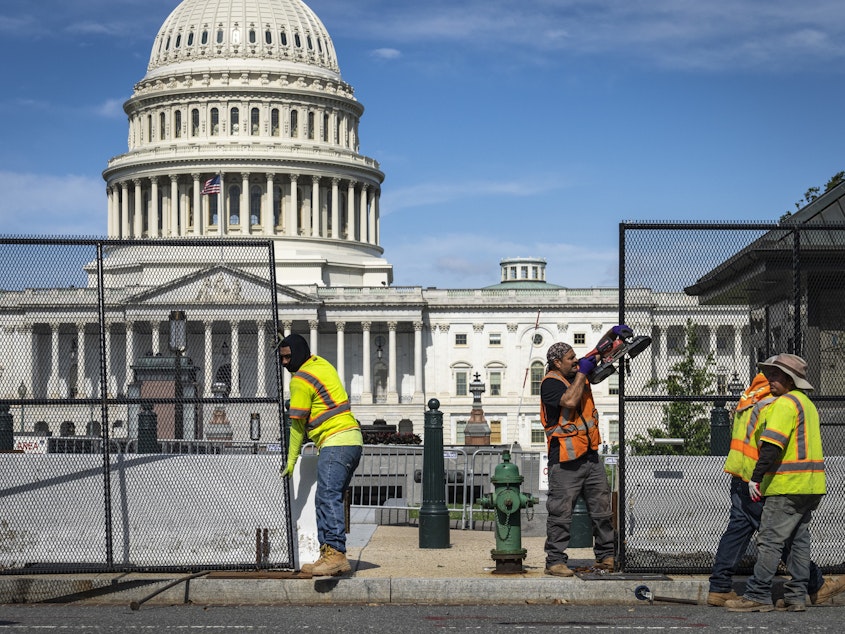Senators Unveil Competing Funding Proposals For Capitol Police Now Short On Cash

Just weeks before Capitol Police are due to deplete funding that was drained by the Jan. 6 insurrection, the top Democrat and Republican on a key Senate panel unveiled dramatically different proposals to rescue the agency's dire finances.
Senate Appropriations Committee Chair Patrick Leahy, D-Vt., introduced a broader $3.6 billion measure, which would direct $679.3 million toward Capitol Police and related security efforts. Meanwhile, the panel's ranking Republican, Alabama Sen. Richard Shelby, unveiled a much smaller $632.9 million package to direct funds just to Capitol Police and the National Guard.
The competing bills reveal the gulf that remains between the parties to reach a consensus on urgent calls to fund Capitol Police, and for new demands in the wake of the deadly siege.
"My Republican colleagues are proposing that we deal with these problems piecemeal — address some of them now, and others sometime, somewhere, someday," Leahy said on the Senate floor while introducing his bill late Monday. "But a piecemeal approach that jumps from one problem to the next is no way to govern. I've been here long enough to know that a promise to do it later is no promise at all."
The measures come nearly two months after House Democrats approved their own $1.9 billion proposal, which was soon met with a tepid reaction in the Senate. The House plan would direct nearly $1 billion to boost Capitol Police and security for members of Congress, with another large share of money set to reimburse the National Guard and other federal agencies for their work related to Jan. 6.
Sponsored
House Democrats approved their bill on a razor thin margin of 213 to 212, with a few members of their party joining Republicans to vote against it.
Leahy's proposal, by comparison, would expand on funding pandemic-related costs for several federal agencies and new assistance in the form of visas and other support for U.S. allies in Afghanistan.
For example, it directs $1.83 billion to the Defense Department, including $521 million to reimburse costs for the deployment of the National Guard to Capitol Hill. Another $1.3 billion is set aside to address Defense Department pandemic costs and an additional $100 million in emergency aid for Afghan refugees.
"Absolutely the wrong direction," Shelby told Capitol Hill reporters of the broader Leahy plan that includes funding for Afghan visas.
Shelby suggested such other programs should be addressed in other bills.
Sponsored
"We'll be talking I'm sure," he added.
In an earlier statement, Shelby also noted that both the National Guard and Capitol Police will run out of funding by year end. He says that should remain the focus.
His plan directs more than $100 million toward Capitol Police, and more than $500 million for the National Guard for costs related to the attack.
"Funding for the Capitol Police and National Guard must not be held hostage because the Democrats insist on billions more in spending that lacks full support at this time," he said.
In his remarks, Leahy reiterated past statements raising the alarm on Capitol Police funding, and talks that stalled out with Senate Republicans to reach a deal. Leahy estimates Capitol Police will deplete funds dedicated to police salaries next month.
Sponsored
Capitol Police declined to comment on the concerns Friday, but said the force will continue to work with Congress.
"The United States Capitol Police continues to advise and work with our oversight committees, so that the Department can secure the Capitol, Members, and staff within our funded levels," the agency said in a statement. "Supporting our workforce while carrying out our mission remains a high priority." [Copyright 2021 NPR]



